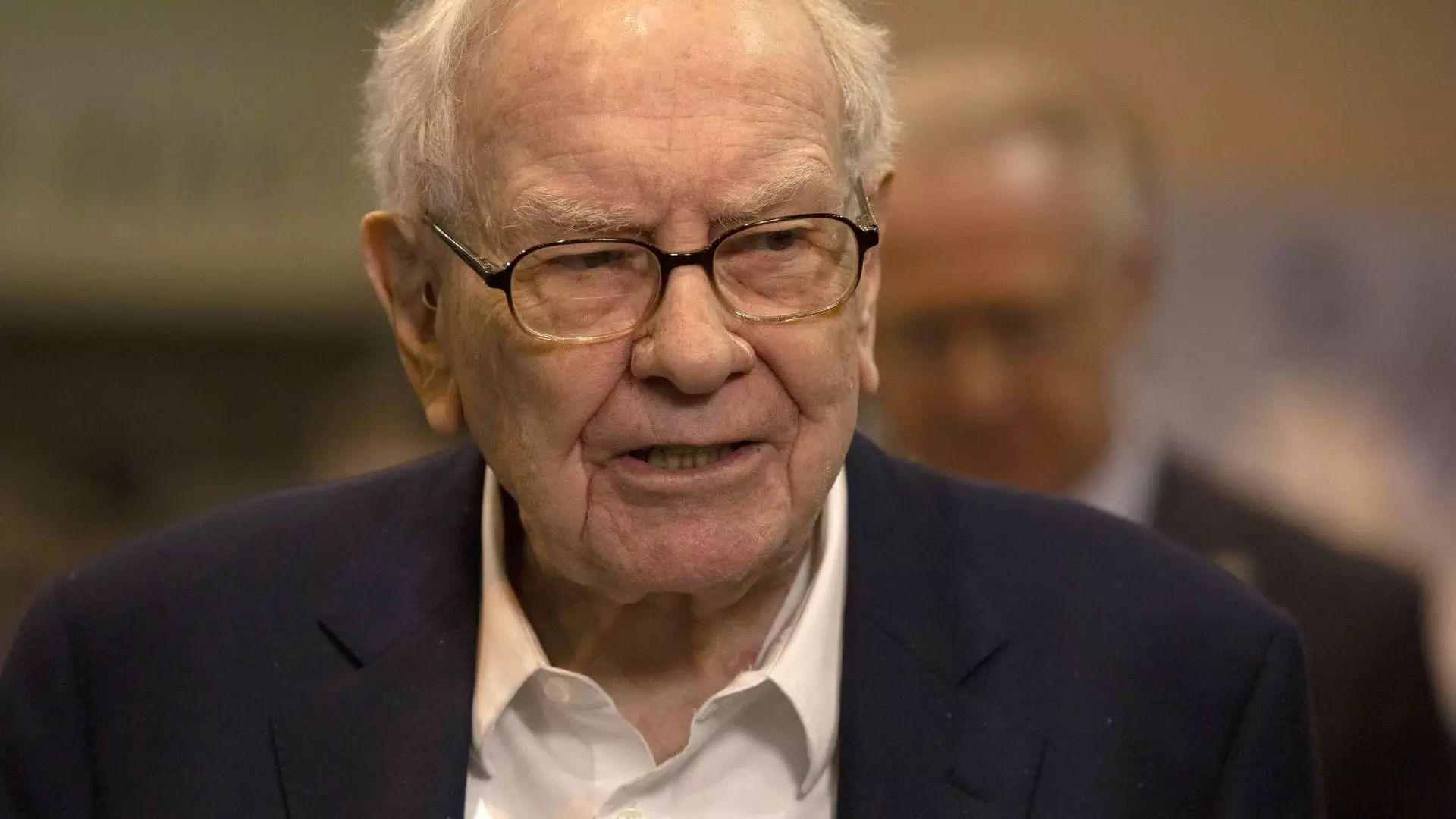Berkshire Hathaway, under the leadership of its iconic chairman Warren Buffett, has once again drawn attention to its financial prowess with a staggering cash reserve now exceeding $325 billion. This figure, reported at the end of the third quarter, is a testament not just to Buffett’s investment acumen but also to his strategic decision-making in a shifting economic climate. The significant cash accumulation comes amidst a notable trend of selling off major equity holdings, including prominent stakes in Apple and Bank of America, raising questions about the company’s future direction and Buffett’s underlying rationale.
During the third quarter, Buffett’s strategy decidedly leaned towards asset liquidation, with Berkshire selling off approximately $36.1 billion in stocks. This divestment, especially a quarter of its Apple stake and over $10 billion from Bank of America, reflects a calculated response to market fluctuations and a philosophy of prudent resource management. While some might view the sale as a reflection of a bearish outlook on these companies, it could rather indicate a more tactical repositioning as Buffett contends with the complexities of the current economic landscape.
The decision to not repurchase shares during this selling spree adds another layer of intrigue. Historically, Buffett has advocated for buying back stock only when it is deemed undervalued; however, this quarter’s results saw Berkshire refraining from such activities, even as its shares reached record highs. This deviation from previous patterns raises questions about whether Buffett foresees potential market corrections ahead or believes that the intrinsic value calculations for repurchasing shares do not align with current market conditions.
Despite the cash influx from stock sales, Berkshire Hathaway’s operating earnings of $10.1 billion for the third quarter suggest mixed performance overall. The slight year-over-year decrease in these earnings, primarily influenced by underwhelming results in insurance underwriting, presents a reminder of the inherent risks within Berkshire’s diverse portfolio. The company’s stock, however, has still significantly outperformed the broader market, showcasing a 25% increase for the year, coupled with the achievement of a $1 trillion market capitalization.
Yet, as the stock market boasts optimism fueled by hopes of economic stability and lower inflation, there exists a counter-narrative. A rise in the 10-year Treasury yield above 4% and concerns regarding rising fiscal deficits challenge the prevailing sentiment. Investors like Paul Tudor Jones have articulated worries over the potential for a long-term economic adjustment and the burdens these deficits could impose on future market performance.
Buffett’s recent selling activities have prompted speculation regarding a possible increase in capital gains taxes, which he suggested could be imminent to address the burgeoning fiscal deficit. This notion underscores Buffett’s historical position as not just an investor but also a commentator on macroeconomic policies affecting the stock market. The upcoming presidential election further complicates this landscape, as neither candidate appears committed to fiscal reforms, potentially forcing a shift in investor sentiment.
Although Buffett remains conservative on repurchases, his cash pile positions Berkshire Hathaway uniquely for potential market opportunities. The current cash reserve lays the groundwork for strategic acquisitions or investments when market conditions become more favorable. This philosophy of waiting for the right moment reflects a time-tested investment strategy that has served Buffett well throughout his career.
As Berkshire Hathaway navigates these uncertain economic waters, the record cash reserves signal both strength and caution within its investment approach. Warren Buffett’s decision to liquidate significant stock holdings while abstaining from share repurchases illustrates a nuanced strategy aimed at protecting the firm’s long-term interests. In light of market volatility and shifting fiscal policies, Berkshire Hathaway undoubtedly remains a keen observer of both stock movements and broader economic patterns, ready to adapt as necessary. The coming months will illuminate whether these strategic decisions will enhance the company’s resilience in a potentially turbulent market environment or if they reflect a more cautious approach towards future growth opportunities.

